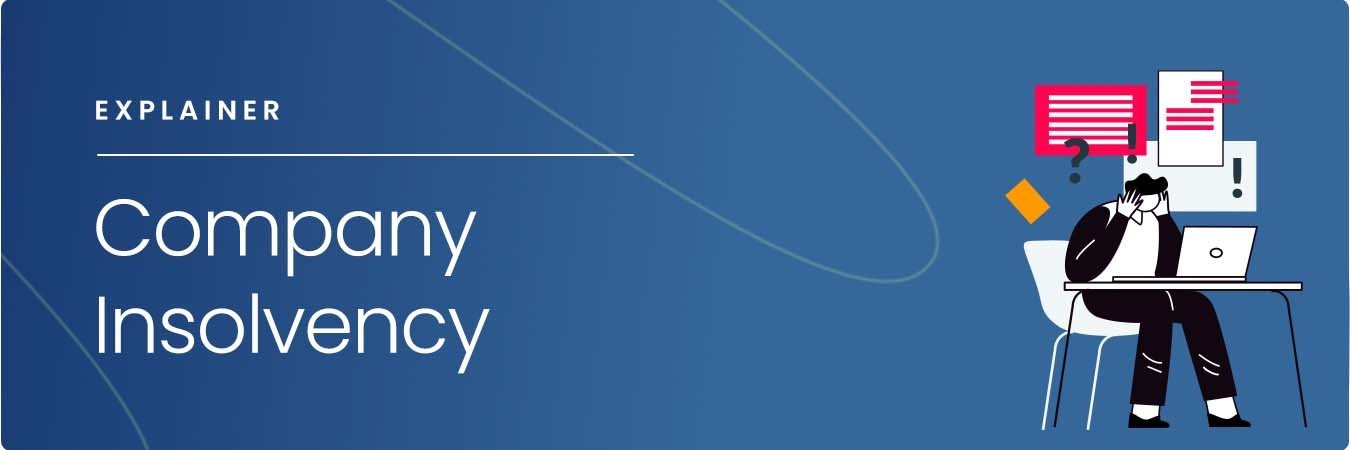Insolvency Practitioner for Beginners
Insolvency Practitioner for Beginners
Blog Article
Insolvency Practitioner for Dummies
Table of ContentsTop Guidelines Of Insolvency PractitionerThe Single Strategy To Use For Insolvency PractitionerThe Facts About Insolvency Practitioner RevealedExamine This Report about Insolvency PractitionerSome Ideas on Insolvency Practitioner You Need To KnowNot known Details About Insolvency Practitioner What Does Insolvency Practitioner Mean?
Insolvency is when obligations are more than the value of the business, or when a borrower can not pay the debts they owe. A firm can come to be financially troubled because of a variety of circumstances that result in inadequate capital. When confronted with bankruptcy, an organization or individual can speak to lenders straight and restructure financial debts to pay them off.Organization owners might get in touch with financial institutions directly and restructure debts right into more manageable installments. Creditors are usually open to this approach due to the fact that they desire to be repaid and stay clear of losses, also if the settlement is on a postponed schedule.
Insolvency Practitioner for Beginners
The owner produces a proposition detailing exactly how the debt may be reorganized utilizing price reductions or other plans for support. The proposition reveals creditors exactly how business may generate adequate capital for profitable operations while paying its debts. Generally, a forgiven financial debt may be considered earnings by the Irs (IRS).

Not known Factual Statements About Insolvency Practitioner
Business may wind up paying huge quantities of money in problems and be overcome operations. When procedures discontinue, so does the firm's income. Lack of revenue leads to accounts payable and lenders asking for money owed to them. Some business end up being bankrupt due to the fact that their items or solutions do not evolve to fit consumers' altering demands.
Expenditures surpass incomes and bills continue to be overdue. Cash-flow bankruptcy happens when a firm has the possessions to cover their financial obligations but they are in the incorrect form, such as actual estate instead of fluid funds. Balance-sheet bankruptcy, on the various other hand, indicates a lack of assets in any kind of form to cover debts.
The IRS states that a person is bankrupt when the overall responsibilities surpass overall possessions. A bankruptcy, on the other hand, is an actual court order that shows how a financially troubled person or service will settle their creditors, or exactly how they will certainly market their possessions in order to make the repayments.
9 Easy Facts About Insolvency Practitioner Described

Debt combination is when you incorporate multiple financings right into one brand-new funding, usually to achieve better terms. Bankruptcy is not the very same as insolvency, although a company that has actually ended up being financially troubled may submit for insolvency. Insolvency is the state of not having the ability to i loved this pay your obligations while personal bankruptcy is a lawful process to release your debts.
Understanding the factors that can lead to bankruptcy, such as overspending, can aid you avoid bankruptcy and its consequences.
The 20-Second Trick For Insolvency Practitioner
It is popular that directors and officers of corporations (and supervisors of limited liability companies) owe fiduciary duties to their companies and their shareholders (or members). These fiduciary obligations are defined by state laws and, though there are variations from one state to another, they commonly consist of a responsibility of commitment and a duty of care.
The duty of care needs directors and policemans to work out diligence, to make educated choices, and to act in great confidence to make sure that their actions remain in the finest interest of the firm. Beyond the scope of this conversation, some states allow these responsibilities to be restricted either by so noting in the organizational papers or complying with other needs.
The Definitive Guide for Insolvency Practitioner
The majority of states specify insolvency in 2 ways( 1) when a firm's obligations become above the sum of its possessions or (2) when the company becomes incapable to pay its financial debts as they become dueand accept both definitions (Insolvency Practitioner). The change in duties takes place since when a business is financially troubled, there is no value in the business beyond get more that owed to the business's financial institutions so that the equity owners no more have a financial risk in the company
Beware about providing shareholders advantageous treatment at the expense of creditors (e.g., licensing and moneying a dividend or a stock redemption). Be careful concerning favoritism in between courses of investors. Make affordable efforts to find out all the realities prior to taking a specific course of activity; supervisors must really think that any kind of choices made are in the very best interests of the corporation in its whole (i.e., decisions will certainly be examined in knowledge due to the result of such activities on the company).
In any insolvency or bankruptcy case, settlements made to particular creditors at the cost of various other financial institutions can be clawed back, especially if there is some connection in between the firm and the creditor. Take into consideration suggesting at an annual investor conference (or any kind of other conference of shareholders) a resolution attesting that all previous organization choices and More Info actions taken by the supervisors and officers of the company were taken in excellent faith after an exercise of practical treatment.
Not known Facts About Insolvency Practitioner
Totally divulge any individual or business relationships with celebrations on the other side of transactions entailing the corporation to avoid the look of a dispute of rate of interest. In evaluating prospective fund raising deals or a sale of properties of the troubled company, realize that these transactions might be inspected later on due to any kind of subsequent development of directors' fiduciary obligations to consist of financial institutions.
Report this page